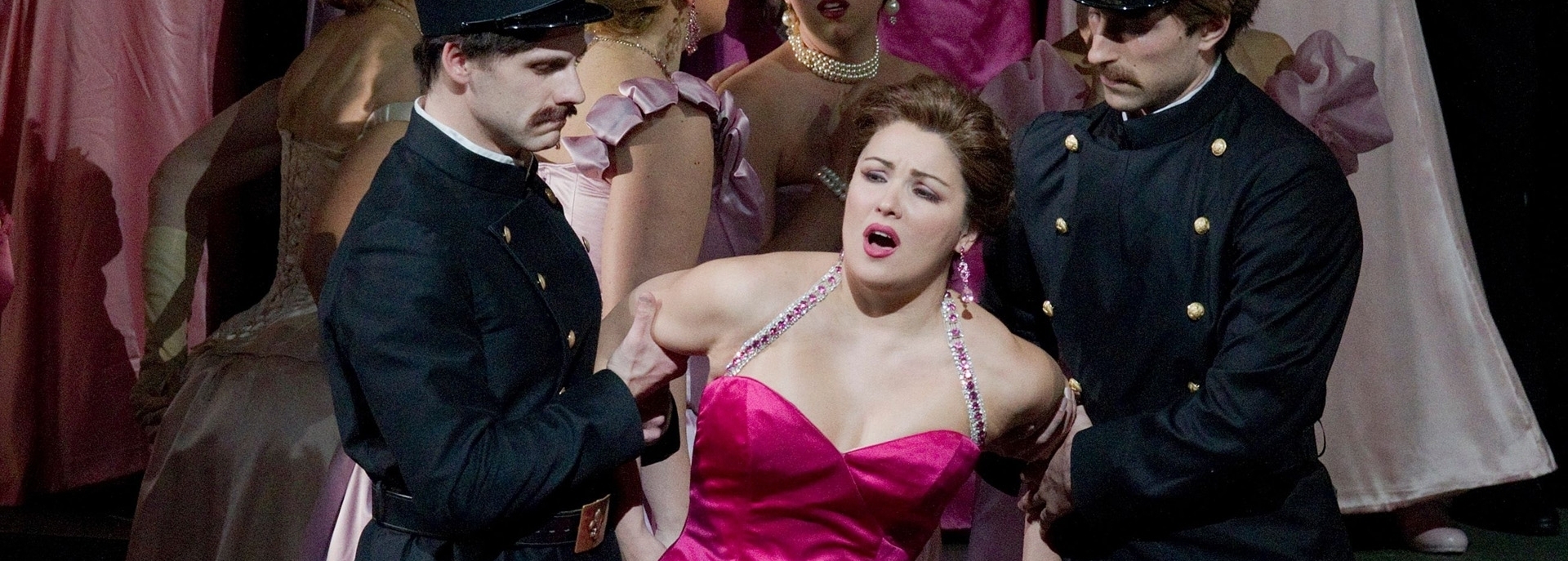Hello everyone, as we approach the beginning of the rehearsals for my first performance in Spain, singing the role of Lescaut in Massenet’s Manon (1884), I thought it would be nice to write a bit about this opera and why it is one of my favourites.
Manon was one of the first complete operas that I heard/saw. (The first one was La Traviata - the first opera DVD I ever bought, with the Glyndebourne Festival production with Marie McLaughlin in the title role) and I remember immediately falling in love with Massenet’s tremendous music.
Also, interestingly enough, both works are linked by Dumas La Dame aux Camélies, as Marguerite (the main character, to be renamed Violetta by Verdi) had a copy of Abbé Prevot’s L’Histoire du Chevalier Des Grieux et de Manon Lescaut. The story of the Lady of the Camelias inspired only Verdi to set it to music but the story of Manon is a different case with both Massenet and Puccini creating stage works to it.
However, both works are very different: Manon Lescaut (1894) was Puccini’s first opera and shows us a composer still honing his craft and finding his ground in a changing operatic tradition in Italy (despite the already easily recognisable Puccini moments), and Massenet’s Manon shows us a composer at the height of the development of French Grand Opera and already established in his style and language. Nevertheless, both operas depict the tumultuous relationship between the young and ravishing Manon Lescaut and the young and somewhat naïve Chevalier des Grieux.
An interesting aspect about Puccini’s version is that the libretto was written by 7 different people in total (including the composer and his publisher Giulio Ricordi), which may in part be why the way the story is handled feels much more episodical and fragmented than Massenet’s version. For instance, while Massenet devotes the entire second Act to depicting the quaint life that Manon and Des Grieux have in Paris (before she leaves him for a wealthier lover), Puccini’s version completely skips that straight into after that happens and they meet at Manon’s new lover house. The entire sequence of Des Grieux entering a seminar in order to forget Manon is also omitted from Puccini’s version, as is their reuniting and gambling downfall.
In a sense, it feels almost as if Puccini selected the sections of the original work that would allow him maximum dramatic expression in the minimum amount of time, at the expense of character development. Massenet’s version, despite deviating from the original ending of the book by ‘killing’ Manon still in french soil, presents us with a story and character driven opera which despite being longer, also portrays Manon and Des Grieux with much finer detail.
My favourite of the two is Massenet’s setting because I find it some of the most passionate writing ever made by anyone and unlike Puccini’s statement that ‘Massenet feels it as a Frenchman, with powder and minuets and I shall feel it as an Italian, with a desperate passion’, the truth is that I find Massenet’s almost Hollywood’esque in the way how it so perfectly sets to music these characters’ emotions. It is a score which is one big Romantic gesture from the beginning until the end and, in a sense, it never becomes as dark as Puccini’s version occasionally gets. However, the fact that it provides a much more sequenced storyline makes us go on a journey with the characters so that when the final scene comes and Manon is dying, the recap of the various love leitmotifs sung by the lovers over the course of the opera is utterly heartbreaking.
Nevertheless, Sola, perduta, abbandonata and the subsequent final duet, do indeed put across this desperate passion that Puccini mentions, but at least for me, it doesn’t really work because I feel like I never got to know those characters well enough up until that point.
As a performer, the role of Lescaut (Manon’s overbearing but morally dubious cousin) provides some wonderful sections of music to sing. He gets 2 really nice arias and sings in some of the operas most affecting ensembles, including the incredible Manon, sphinx étonnant during the scene at the Hôtel de Transylvannie just before the lovers are separated for good. Suffice to say that I’m really looking forward to it. For me, personally, it’s the role I sang so far which while still on the lyric side includes the thickest orchestration to cut through but I’m really excited to be singing under such a luxurious cushion of sound.
More information can be found here and although Media Pack is in Spanish, Ticketea is in English and a search for 'Manon Valladolid' should point you in the right direction. If you happen to be in Spain at the time or maybe fancy a few days away for some heart wrenching French opera, do come along and say hello!
